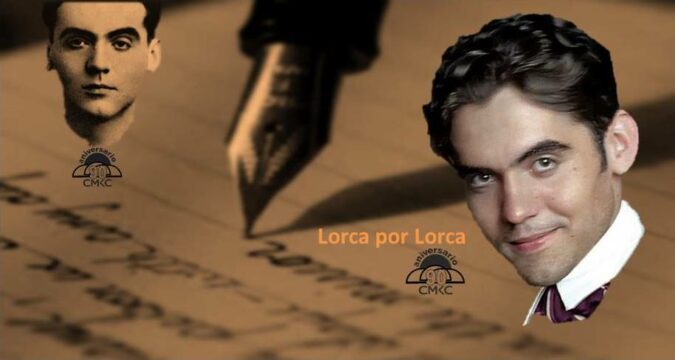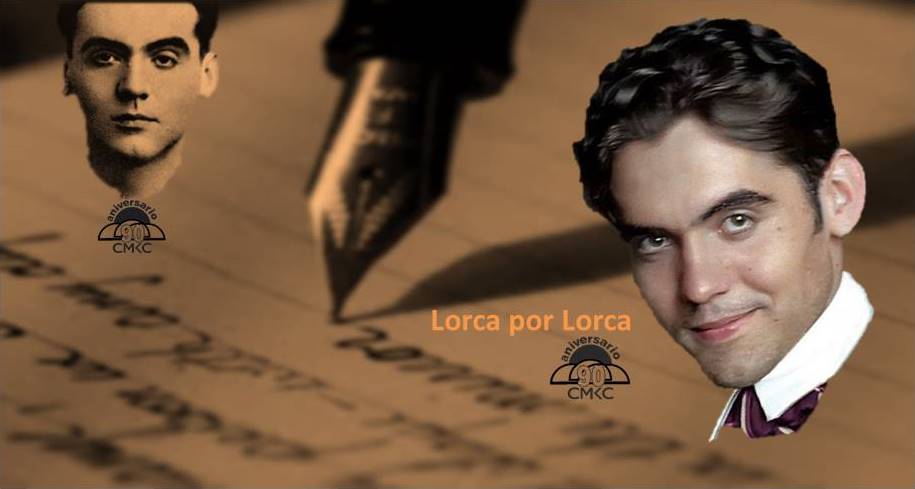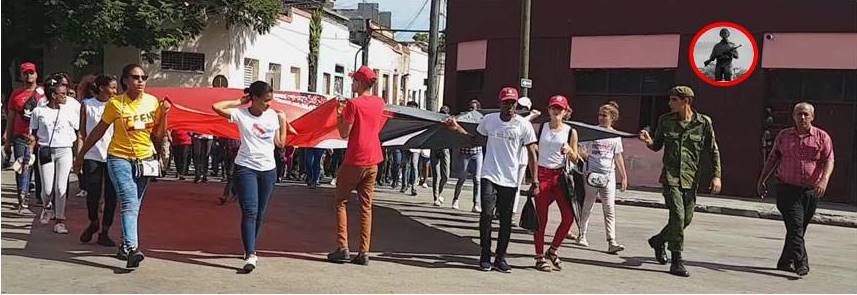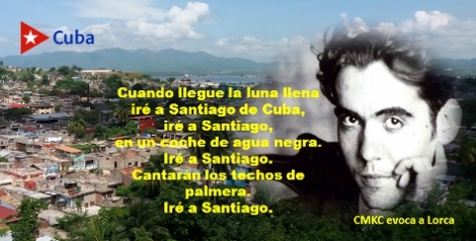
65th Anniversary of the Cuban Revolution

By: Santiago Romero
Oh, pal! I imagine that the farewell of the poet from Granada was hard, back in the thirties of the past 20th century. Then, Santiago de Cuba was struck by a terrible earthquake and the city changed a lot.
Many came from the mountains, and so this natural amphitheater was full of colors, crowds up and down the hill with mulattoes, Indians, Galicians, islanders, Jamaicans, Dominicans, Haitians, Mexicans, French and Africans forcibly imported by the Spanish colonialists.
Did you ever try to see the city from the heights of Chicharrones or from the Loma de los Desamparados, from the loma la Colorà -now Versalles-; even from the heights of Caney, Boniato or the port of Moya, along the old road to El Cobre.

I Will Go to Santiago
Oh, pal! I imagine that the farewell of the poet from Granada was hard, back in the thirties of the past 20th century. Then, Santiago de Cuba was struck by a terrible earthquake and the city changed a lot.
Look how the tranquility of the bay surprises and how many stories bring the yawns of a distant chimney, always escorted by the blue mountains, which do not allow the escape of the Creole pregón, the breezes or the street bustle.
The ceiba stands in the main outskirts of the city and the flamboyant trees shed their dry leaves, but few notice these everyday things.
Anywhere people play domino, while others offer yerba, tobacco and candles to the saints, and there are those who prepare a bucket of water to refresh the street or say goodbye to the old year and welcome the new with a briefcase walking around the neighborhood, perhaps, for the spirits to rest or to chase away bad thoughts and wish a good day ahead.
Santiago de Cuba is worth dreaming about for a long time or living it intensely every second.
The best answer could be in those verses of the Granada poet García Lorca:

| When the full moon rises I’ll go to Santiago de Cuba, I’ll go to Santiago In a coach of black water. I’ll go to Santiago. The palm roofs will sing. I’ll go to Santiago When the palm tree wants to be a stork, I’ll go to Santiago. And when the banana wants to be a jellyfish, I will go to Santiago. I will go to Santiago with the lionine head of Fonseca. I will go to Santiago. And with the rose of Romeo y Julieta * I will go to Santiago. Oh Cuba! Oh rhythm of dry seeds! I will go to Santiago. Oh hot waist and chip of wood! I will go to Santiago. Harp of living trunks, alligators, tobacco flowers! I will go to Santiago. I’ve always said that I would go to Santiago in a coach of black water. I will go to Santiago. Alcohol breeze in the wheels, I will go to Santiago. My coral in the penumbra, I will go to Santiago. The ocean drowned in the sand, I will go to Santiago, White heat, dead fruit, I will go to Santiago. Oh the bovine freshness of reed rows! Oh Cuba! Oh curve of sighs and clay! I will go to Santiago.. |
The hustle and bustle, the slogans, the shouts, the laughter, the sweat, the indiscreet look and even the hurried pace of the crowd, does not disappear, on the contrary, at the end of the year it takes over the main squares of the province of Santiago de Cuba and throughout the national archipelago.
The dawn of the new year is unusual after so many social isolations, and above all, after one of the worst years experienced due to the ravages caused by the blockade and internal irregularities.
Santiago de Cuba: Laboran en más de 400 obras de interés socioeconómico por aniversario del triunfo de la Revolución

Oh, pal! I imagine how hard was the farewell of the poet from Granada, surprised at his entrance via the railroad, lodged in front of the old train station on La Alameda Avenue where the mulatto woman made her grace move to the beat of the step like a heron; her right hand on her waist; her laughter overflowing with sweat and a mischievous look that attracts like a magnet under a sun that breaks stones and the disorder of the neighborhood chants! * Fonseca and Romeo y Julieta are references to the famous Cuban cigars, particularly their boxes and cigar wrappers that Lorca’s father smoked.























